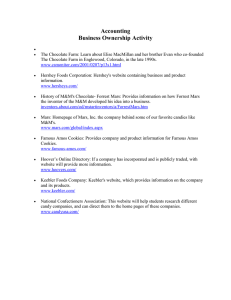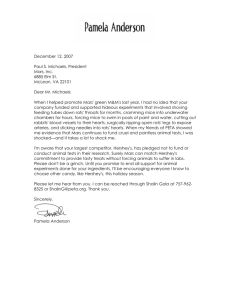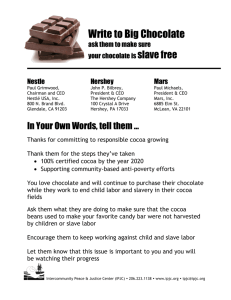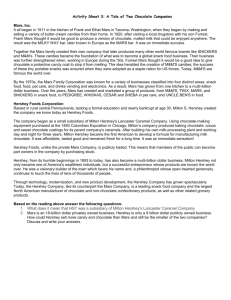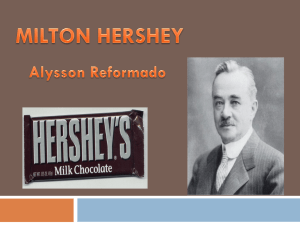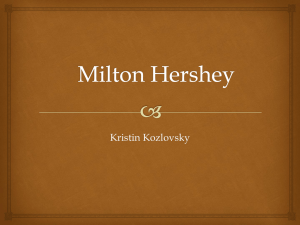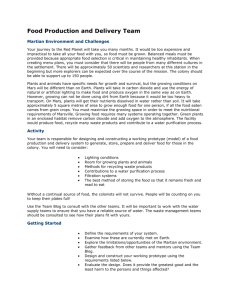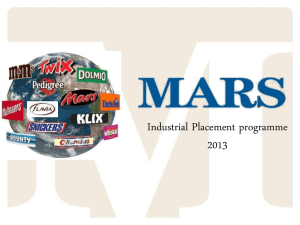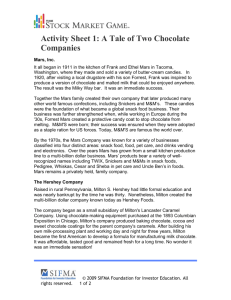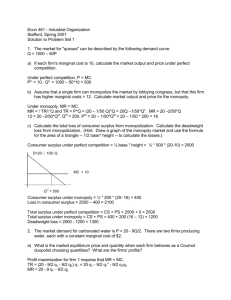Business Organizations Power Point - Troup 6
advertisement
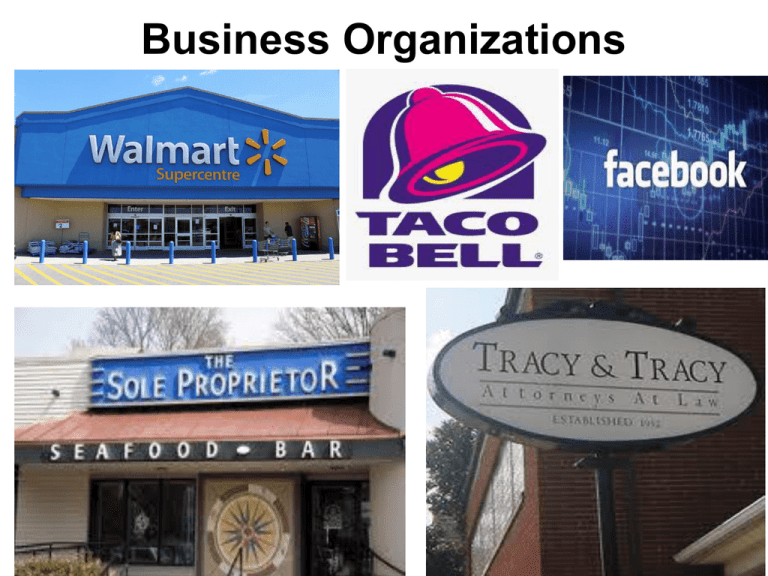
Business Organizations TYPES OF BUSINESS ORGANIZATIONS 1. PROPRIETORSHIP- one owner (most common/ easiest to enter) 2. PARTNERSHIP- two or more owners (least common/ professionals) 3. CORPORATIONstockholders (makes most $/ toughest to enter (charter) Sole Proprietorship • Easy to Start • Unlimited Liability • Exclusive Profit • Sole Responsibility • Needs CollateralLimited Growth Potential • Full Control • Lacks Longevity Partnership • • • • • • • • Easy to Start Can Specialize Shared Decisionmaking Shared Losses Unlimited Liability Potential for Conflict Lacks Longevity Corporation Easy to raise Capitalbut tough guidelines to sell stock Difficult to Form Limited Liability Taxed Twice Profits are Divided Last longer than its founders. Owners are separate from managers. Sweet Opportunities Instructions • Make a recommendation about what form of business organization you think is best for each client. • State the reasons for your position. There will also be some disadvantages to the business form you choose. • Identify at least one negative and suggest how you might minimize it. SWEET OPPORTUNITIES GROUP WORK ANSWER KEY Client #1 • Client 1: Elise MacMillan and her brother Evan co-founded The Chocolate Farm in Englewood, Colorado, in the late 1990s. • They formed a partnership and won so many awards they eventually had to shut down part of their website because they couldn’t fill the orders. They hired about 10 people to work for them. Client # 2 • Client 2: Milton Hershey broke ground for his chocolate factory near Lancaster, PA in 1903. It was the beginning of what would become Hershey Foods Corporation . Client # 3 • Client 3: Forest Mars invited Bruce Murrie, an investment banker and son of the Hershey company president, to be his partner in M&M Ltd. The M&Ms we still eat today were first sold to the public in 1941. The letters in "M&M" stand for Mars & Murrie. Eventually, Murrie left the business but Forest Mars became the owner of Mars, Inc. Client # 4 • Client 4: Wally Amos launched the Famous Amos Cookie Company in a Hollywood, CA storefront on Sunset Boulevard in 1975. Diversification • Both Hershey Foods and Mars have purchased manufacturers of other chocolate candy bar brands and non-chocolate candies. Hershey used to sell cocoa mulch, a byproduct of the chocolate making process, to gardeners, but no longer does. Mars has a history in the pet food business. Other Mars ventures include hot and cold drink vending machines. • Famous Amos Cookies changed hands several times between 1985 and 1998, eventually being purchased by Keebler Foods. Keebler was acquired by Kellogg Company in 2001, helping expand what is viewed as a cereal company into the snack foods market as well. Summarizer sole proprietorship corporation partnership

